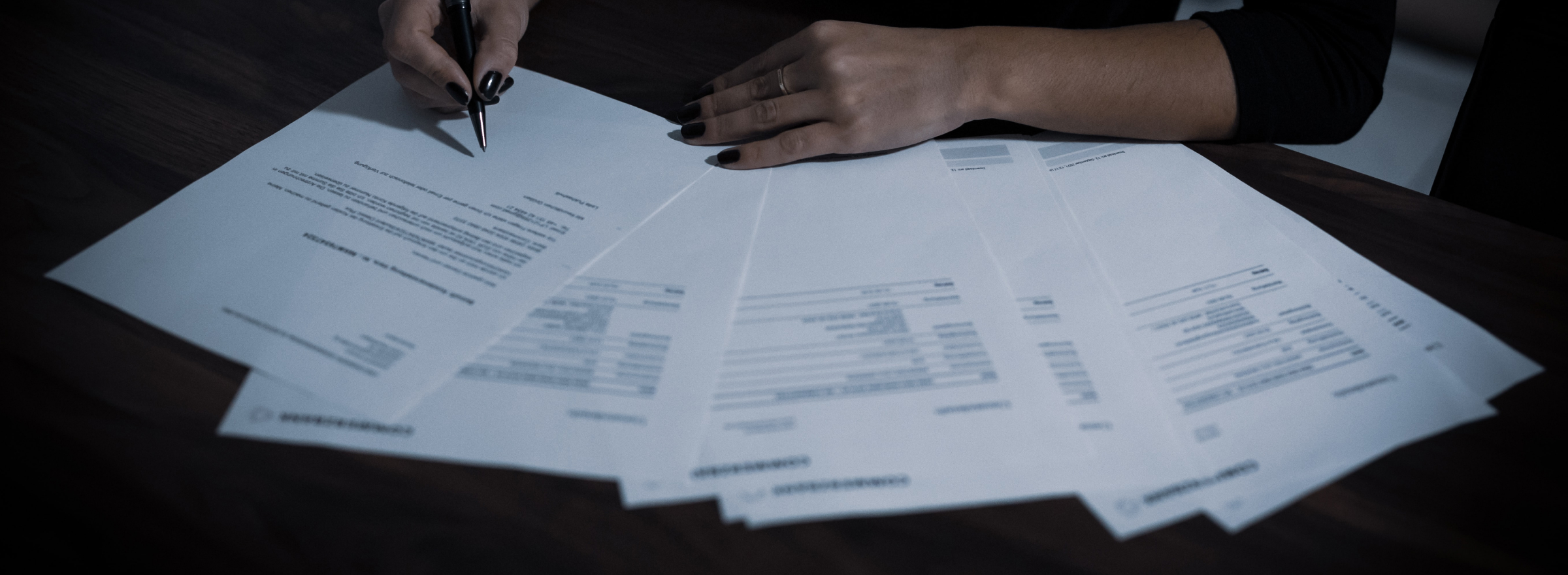Do you need to complete a Self-Assessment tax return?
If the answer is yes, then be wary of the following pitfalls when completing your Self-Assessment. These common mistakes can delay the processing of your tax return, result in an incorrect tax bill or even trigger an HMRC investigation.

Here are six things to look out for:
1. Not entering payments on account
After submitting your annual tax return, it’s tempting to think your Self-Assessment tax obligations are sorted for another year. However, you still need to enter payments on account.
This is a sum you must pay by the 31 July after you submit your Self-Assessment. This sum is essentially 50% of your previous year’s income tax bill, which helps to spread the tax burden over the year. You will then pay the other half (plus any extra owed) by 31 January the following year.
2. Not declaring income from property
If you draw an income from renting out any UK property – this includes land and even renting out a room in your house – you’ll need to declare it on the ‘What makes up your tax return’ summary page and fill in the UK Property page further down the document.
You’ll also need to indicate whether Capital Gains Tax applies from the sale of any non-residential property (or other assets) and if so, fill out the Capital Gains Summary page.
3. Not declaring business expenses
You’re entitled to write off various business-related costs, so make sure you do!
Whether the expenses are from running an office, travel, uniforms, staff, stock, insurance or something else, find out what you’re entitled to on the GOV.UK website and declare them on the Business Expenses page before you calculate your taxable profit.
4. Forgetting to declare a support grant
Were you one of the 2.7 million people who received a coronavirus Self-Employment Income Support Scheme (SEISS) grant during the pandemic?
If so, don’t forget to declare it on your annual Self-Assessment and include it as taxable profit. You can do this by checking box 20.1 under ‘Finishing your tax return’, then include the amount on the Self Employment page under box 16 – ‘Any other business income’.
5. Not declaring dividends
If you’re a company director, you’ll likely receive dividends alongside any salary you draw. You do get a personal tax-free allowance for dividends – £2000 for the 2021/22 tax year. However, all dividends – including those below that amount received during the tax year (which may be different to your company’s accounting year) – must be declared.
Also remember that if you have more than one business, you’ll need to fill in a separate Self Employment page on your Self-Assessment tax return for each one.
6. Missing something
Modern life is hectic, and this is never truer than if you’re self-employed.
During the last tax year, were you a chairperson, secretary or treasurer? Do you receive Child Benefit payments (and your salary is over £50,000)? Did you receive Interest from UK banks and building societies? What about a personal or workplace pension? It all needs to be declared.
Self-Assessment Help
Are you looking for someone to help you complete your self-assessment tax return? Appoint QAccounting to take care of your self-assessment preparation and submission!
Keeping your business records handy, including profit or loss accounts, bank statements, building society books, dividend counterfoils, investment brokers’ schedules and personal pension contributions certificates will help you keep everything straight.
Or, even better, hire a qualified Self-Assessment accountant to make sure your tax return is error-free.
Mistakes on your Self-Assessment can cause you to over-pay or under-pay tax, or even land you in hot water with HMRC, so it makes sense to work with a Self-Assessment accountant to make your next tax season a breeze. Our accounting services can help you with your Self-Assessment, so don’t hesitate to get in touch with one of our experts if you need any help.
More Blogs
How Much Does a Director Loan Cost?
Director loans are a popular yet often misunderstood financing method used by small business owners. If you’re a company director who has taken, or is considering taking, money out of your company (that isn’t structured and subject to tax as: a salary, dividend, or expense reimbursement), then you are effectively using a Director Loan. It is therefore important to understand these rules and the costs involved.
Do I Need to Use a Separate Bank Account for My Sole Trader Business?
One of the most common questions we receive when clients are setting up as a self-employed sole trader for the first time, or indeed for existing businesses who transfer into us is: “Do I need to use a separate bank account for my Sole Trader business?” The article explains the benefits of using a separate bank account for business transactions as a self-employed sole trader.
Is It Better To Be Self-Employed Or Use a Limited Company?
The article helps business owners decide how best to structure their business, by considering the differences between operating as a self-employed sole trader or partnership, or by using a limited company.
